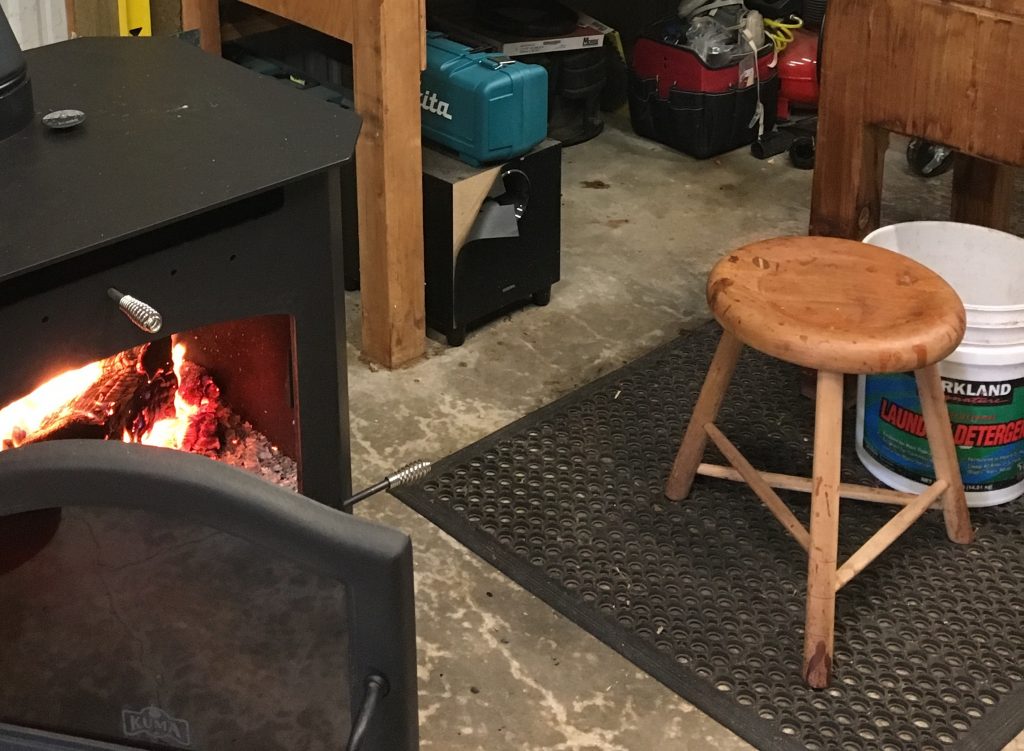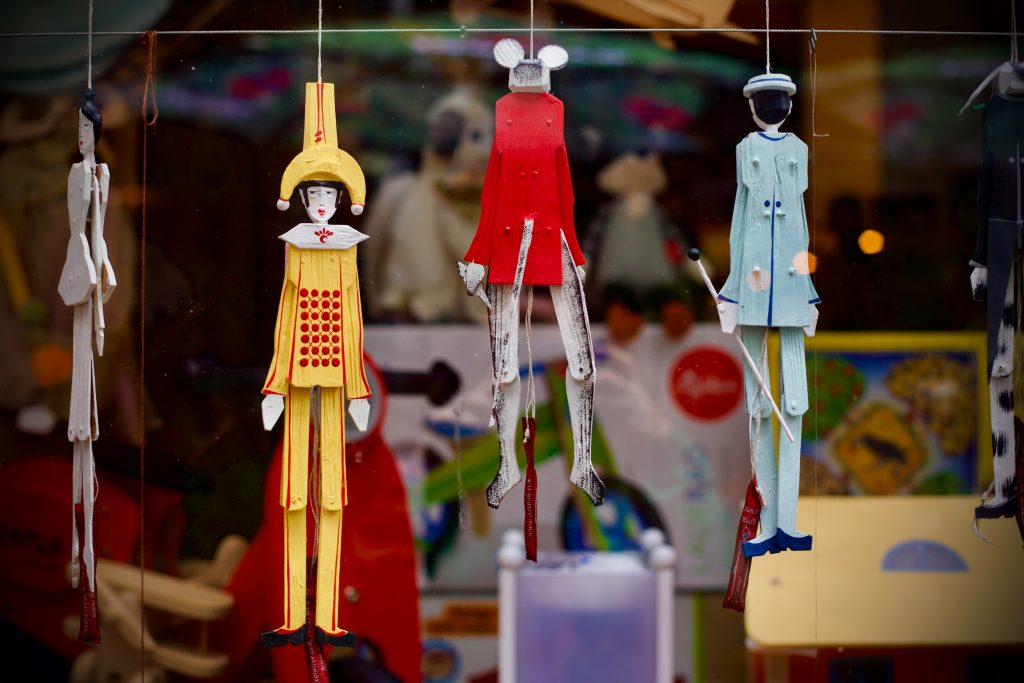Three intertwined policies that form a whole – a trinity – make up the foundation of our unique, multi-stakeholder, community-owned business structure.
As any woodworker knows, a 3-legged stool is the strongest design. In this post, we take a moment to explain how the Ownership Model, Handmade Policy, and Points & Tiers Policy interact with each other to incentivize, empower, and engage our community.

Ownership Model
Our Ownership Model lays out in one page who our members are and what the rights and responsibilities are of each.
In the Ownership Model, Artisan eligibility and responsibilities are defined by the Handmade Policy. For all members, buy-in amounts and financial benefits are determined by the Points & Tiers system.
Member responsibilities and governance rights are differentiated simply by member class, just like most cooperatives. Regardless of points or tiers, all members have:
- “One member, one vote” on bylaw changes, major decisions, and representatives
- The ability to run for and elect their representatives on the Board of Directors, which is still be divided by membership class in order to ensure diverse representation
- The ability to submit proposals for the co-op
- Access to member-only perks, such as access to newsletters and lower sales commissions for Artisans
The Points & Tiers system solves some of the problems of multi-stakeholder member classes, dividing us less and uniting us more.
For example: if an Artisan also wants to be a Supporter, they don’t need to create two memberships to earn dividends for both patronage activities, sales and purchases. Artisans can earn points for purchases just like in a food co-op without a separate membership.
Using tiers to distribute financial benefits solved a lot of problems around equity in this important right. It allows for flexibility in defining tiers, so any unanticipated ripple effects can be dynamically course-corrected as we receive usage data. And it relieved pressure and removed judgmentalness when defining classes and class rights. Community members envisioned scenarios where an enthusiastic Supporter, for example, could contribute more to the co-op than a disengaged Artisan, and wanted to perpetuate and reward the engagement, not the title.

Handmade Policy
The Handmade Policy defines what an Artisan is and what a handmade good is, which is critical for determining eligibility for who gets to be in the Artisan member class in the Ownership Model. But more importantly, the Handmade Policy solves the problem of inauthentic goods on marketplaces by using a people-powered verification and enforcement system.
To make the handmade verification and enforcement system work – and scale – is not a matter of technology or money, but of people. It can’t be done by bots. It requires a number of people proportional to platform size, engagement, and incentives.
Other marketplaces have struggled to afford, find, hire, and train enough people to do this as a job and mostly rely on algorithms and bots that often treat people unfairly and can’t actually manage the problem.
When it comes to handmade, we believe the only true way to discern authenticity is by humans – better yet, skilled and knowledgeable fellow artisans. We needed to mobilize the people who care the most about inauthentic competition on the marketplace: the members who want to use the marketplace.
This is where the Points & Tiers Policy comes in. Members will receive points, and thus greater financial benefits through higher tier placement, for conducting handmade verifications and reporting policy violations. It is a system of self-reliance that recognizes, incentivizes and rewards the members doing the work that they want to see done anyway. It’s in their own interest but also for their own benefit.
These two policies together give members more control over the marketplace – something only a cooperatively owned marketplace could offer. Artisans don’t want unfair competition on the site, and with the handmade policy, they can both actively do something about it and get rewarded for doing so (with handmade verifications and enforcement reports). Supporters don’t want scammy products cluttering their shopping experience, and now they can actively do something about it and get rewarded for doing so too (with enforcement reports).
And critically, as the platform grows, and the numbers of users and members grow, so do the number of engaged handmade verifiers, allowing the co-op to scale organically and proportionally.

Points & Tiers Policy
The purpose of the Points & Tiers Policy is to incentivize member engagement, equitably value and reward all kinds of contributions (not just cash), and help the co-op be successful. It is a system of values and rewards that goes beyond the intangible benefits of a typical loyalty program, because it determines a member’s share of dividends at the end of the year when there’s a surplus.
It is the mechanism that makes the Handmade Policy work, and a field-leveler for members rights and responsibilities in the Ownership Plan.
It accomplishes this by:
- Valuing all patronage activities for all members in a consistent currency called points
- Accepting member buy-ins using points as well as cash to increase accessibility for all who want to join
- Distributing financial benefits (dividends) by tiers, which is a flexible grouping of all members by total points earned, regardless of member class
Patronage activities are the contributions members make to the co-op to make it successful, such as buying and selling on the marketplace, material support, financial aid, and activities like handmade verifications.
This unites all contributions and all members into one successful co-op rather than dividing members by “class” (Artisan, Supporter, Staff).
These three plans and policies work together to create a strong foundation for the most critical components of our Business Plan.
What do you think? Share your thoughts and comments below.
About Artisans Cooperative
We are growing an online handmade marketplace for an inclusive network of creatives: a co-op alternative to Etsy.
Shop the marketplace!

This lays everything out nicely. Well done.
Pingback: Walnut Becomes a Founding Member of Artisans Cooperative: a Better Handmade Marketplace | the official blog of Walnut Studiolo
Pingback: Our Data And Points Tracking Plan | Artisans Cooperative